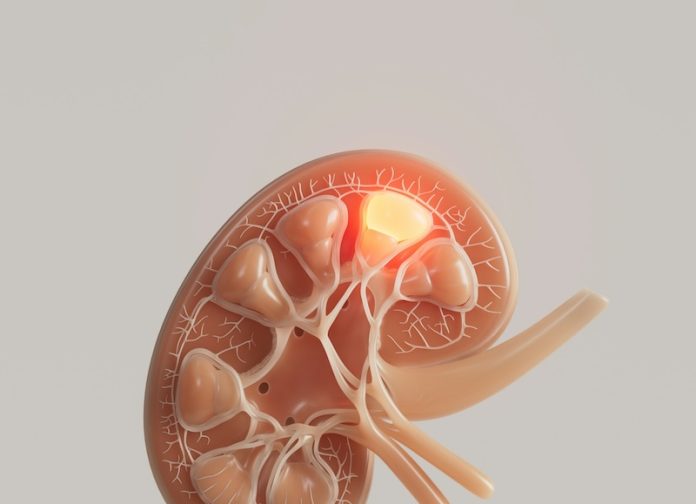
Chronic renal failure, also known as chronic kidney disease (CKD), is a condition in which the kidneys gradually lose their ability to function properly over time.
The kidneys play a vital role in filtering waste and excess fluids from the blood, so when they start to fail, it can lead to serious health problems.
But what causes chronic renal failure, and why do some people develop this condition? This article will explore the common causes of chronic renal failure in a simple and easy-to-understand way.
One of the most common causes of chronic renal failure is diabetes. Diabetes is a condition in which the body either doesn’t produce enough insulin or can’t use it effectively, leading to high levels of sugar (glucose) in the blood.
Over time, high blood sugar can damage the tiny blood vessels in the kidneys, reducing their ability to filter waste properly. This condition, known as diabetic nephropathy, is one of the leading causes of chronic kidney disease worldwide.
Research has shown that people with poorly controlled diabetes are at a higher risk of developing chronic renal failure.
High blood pressure, or hypertension, is another major cause of chronic renal failure. Blood pressure is the force of blood pushing against the walls of your arteries. When blood pressure is too high, it can damage the blood vessels in the kidneys, making it harder for them to function properly.
Over time, this damage can lead to chronic kidney disease. High blood pressure and kidney disease often go hand in hand, with each condition making the other worse.
Managing blood pressure through medication, diet, and lifestyle changes is crucial in preventing or slowing the progression of chronic renal failure.
Another significant cause of chronic renal failure is glomerulonephritis, a group of diseases that cause inflammation in the kidneys. The glomeruli are tiny filters in the kidneys that remove waste from the blood.
When these filters become inflamed, they can’t work as effectively, leading to a buildup of waste products in the body. Glomerulonephritis can be caused by infections, autoimmune diseases, or other health conditions, and it is a common cause of chronic kidney disease.
Polycystic kidney disease (PKD) is a genetic disorder that can also lead to chronic renal failure. PKD causes cysts, which are fluid-filled sacs, to develop in the kidneys.
Over time, these cysts can grow larger and more numerous, eventually leading to kidney damage and failure. Because PKD is inherited, it runs in families, and people with a family history of the disease are at a higher risk of developing it.
Repeated urinary tract infections (UTIs) can also contribute to chronic renal failure. While most UTIs are easily treatable and do not cause long-term damage, repeated or severe infections can scar the kidneys and reduce their function over time.
This is particularly true if the infections spread to the kidneys, a condition known as pyelonephritis. Maintaining good urinary health and seeking prompt treatment for infections can help prevent kidney damage.
Certain medications and toxins can also cause chronic renal failure. Some pain relievers, antibiotics, and other medications can damage the kidneys if used excessively or over long periods.
Similarly, exposure to toxins, such as heavy metals or certain chemicals, can harm the kidneys and lead to chronic kidney disease. It’s important to use medications as directed and avoid exposure to harmful substances to protect your kidney health.
Lifestyle factors, such as obesity and smoking, can increase the risk of chronic renal failure as well. Obesity can lead to conditions like diabetes and high blood pressure, which are major causes of kidney disease.
Smoking, on the other hand, can damage blood vessels and reduce blood flow to the kidneys, further contributing to kidney damage.
In conclusion, chronic renal failure is a serious condition with multiple causes, including diabetes, high blood pressure, glomerulonephritis, polycystic kidney disease, repeated infections, certain medications, and lifestyle factors like obesity and smoking.
Understanding these causes can help people take steps to prevent or manage chronic kidney disease, reducing the risk of kidney failure and maintaining better overall health.
While chronic renal failure is a challenging condition, early detection and proper management can make a significant difference in the quality of life for those affected.
Copyright © 2024 Knowridge Science Report. All rights reserved.



